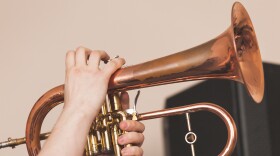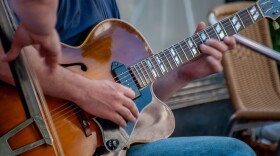-
Some of jazz’s most important stories are preserved in archives that safeguard music, history, and culture for future generations.
-
Before the trumpet took center stage, the cornet was jazz’s leading voice. With its rounded tone and agile response, the cornet helped define the sound of early New Orleans jazz.
-
The flugelhorn offers a different voice in jazz—softer, warmer, and more intimate than the trumpet. With its wider bore and conical shape, the flugelhorn produces a mellow tone that invites reflection rather than fanfare.
-
From the very beginning, the trumpet has been a defining voice in jazz. In early New Orleans ensembles, it carried the melody—bold, clear, and leading the way.
-
Few artists pushed the boundaries of jazz like Sun Ra. Composer, bandleader, and visionary, Sun Ra believed music could reshape consciousness.
-
In jazz history, record labels helped shape it. No label did that more profoundly than Blue Note Records.
-
This week we’ll be talking about the life and career of the man that many call the Father of American opera: Carlisle Floyd. Our guests are Floyd's neice, Jane Matheny, and his biographer, Thomas Holliday. A native of Latta, South Carolina, Carlisle Floyd became a professor of composition at Florida State University in 1947. His magnum opus, Susannah, was first performed in 1955 and became the most performed American opera, second to Gershwin’s Porgy and Bess.Floyd was both composer and librettist of his operas, which typically portrayed themes common to rural America, especially the post-Civil War South. 2026 in the centennial of Carlisle Floyd’s birth and today we’ll talk with our guests about his long life and his career.
-
When people think of Southern jazz, New Orleans often gets the spotlight, but the music’s story stretches far beyond the Crescent City.
-
In 1959, at the height of his career, saxophonist Sonny Rollins disappeared from the jazz scene. But Rollins wasn’t done -- he was searching. He found his practice space high above New York City on the Williamsburg Bridge.
-
Jazz has always been rich in creativity, but making a living as a jazz artist can be a different story. From the earliest days of big bands to today’s streaming era, musicians have had to balance artistry with economic reality.

Play Live Radio
Next Up:
0:00
0:00
Available On Air Stations









